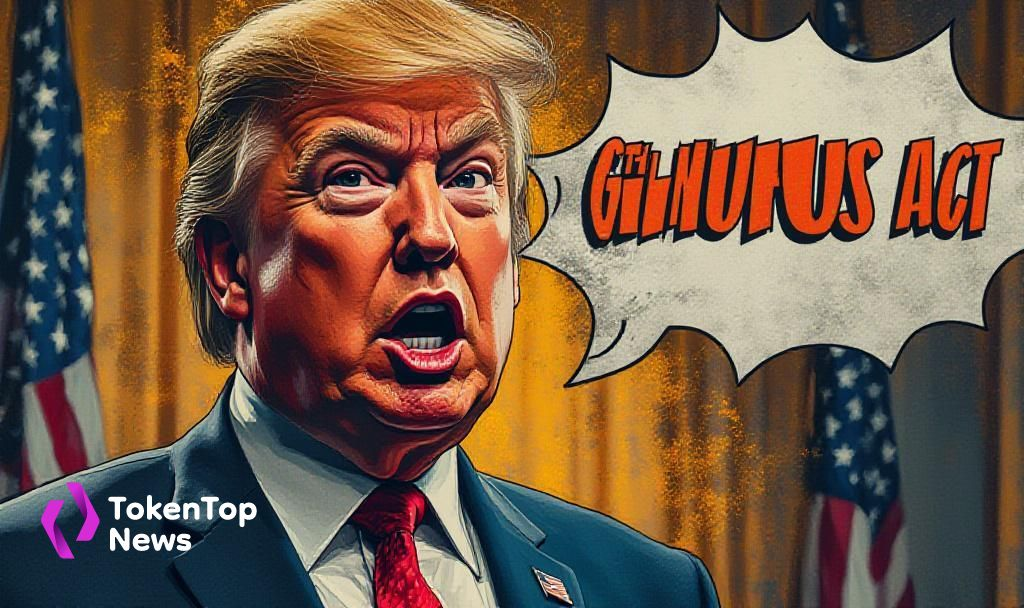Trump Supports GENIUS Act, Boosts U.S. Stablecoin Sector
- Trump signs the pivotal GENIUS Act on U.S. cryptocurrency law.
- Stablecoins gain formal regulation in the U.S.
- Increased mainstream adoption anticipated for stablecoins.

President Donald Trump signs the GENIUS Act at the White House, establishing the first significant federal cryptocurrency law in the United States on Monday.
The GENIUS Act represents a transformative step in U.S. cryptocurrency regulations, particularly for stablecoins. Markets anticipate increased confidence and participation from institutional investors.
The GENIUS Act, championed by President Donald Trump, introduces a new era in cryptocurrency regulation. Both the U.S. House and Senate approved the bill with strong bipartisan support. With the new legislation, banks and financial entities will face fewer hurdles in issuing stablecoins.
Donald Trump, previously a crypto skeptic, now plays a pivotal role in crypto industry advancements in the United States. “I’m president. And what I did do there is build an industry that’s very important. If we didn’t have it, China would,” he remarked, highlighting his administration’s commitment to ensuring the U.S. remains ahead of its global competitors.
This legislation paves the way for mainstream adoption, providing a clearer regulatory framework for USD-backed stablecoins. The anticipation of new capital inflows and financial stability is prompting excitement among market participants.
The GENIUS Act also helps establish the U.S. as a leader in an industry valued at $250 billion. The regulatory clarity offered by this act is set to increase public trust and potentially influence the market value of related cryptocurrencies like BTC and ETH.
Improvements in the regulatory landscape promise enhanced opportunities for innovators and entrepreneurs in the crypto space. Analysts predict a shift in global crypto dynamics, with more liquidity and stablecoin usage promoted by a defined legal framework. Such regulatory measures are expected to bolster market activities and cross-chain collaborations across sectors. The decision underscores a national strategy to harness and secure technological advances.




